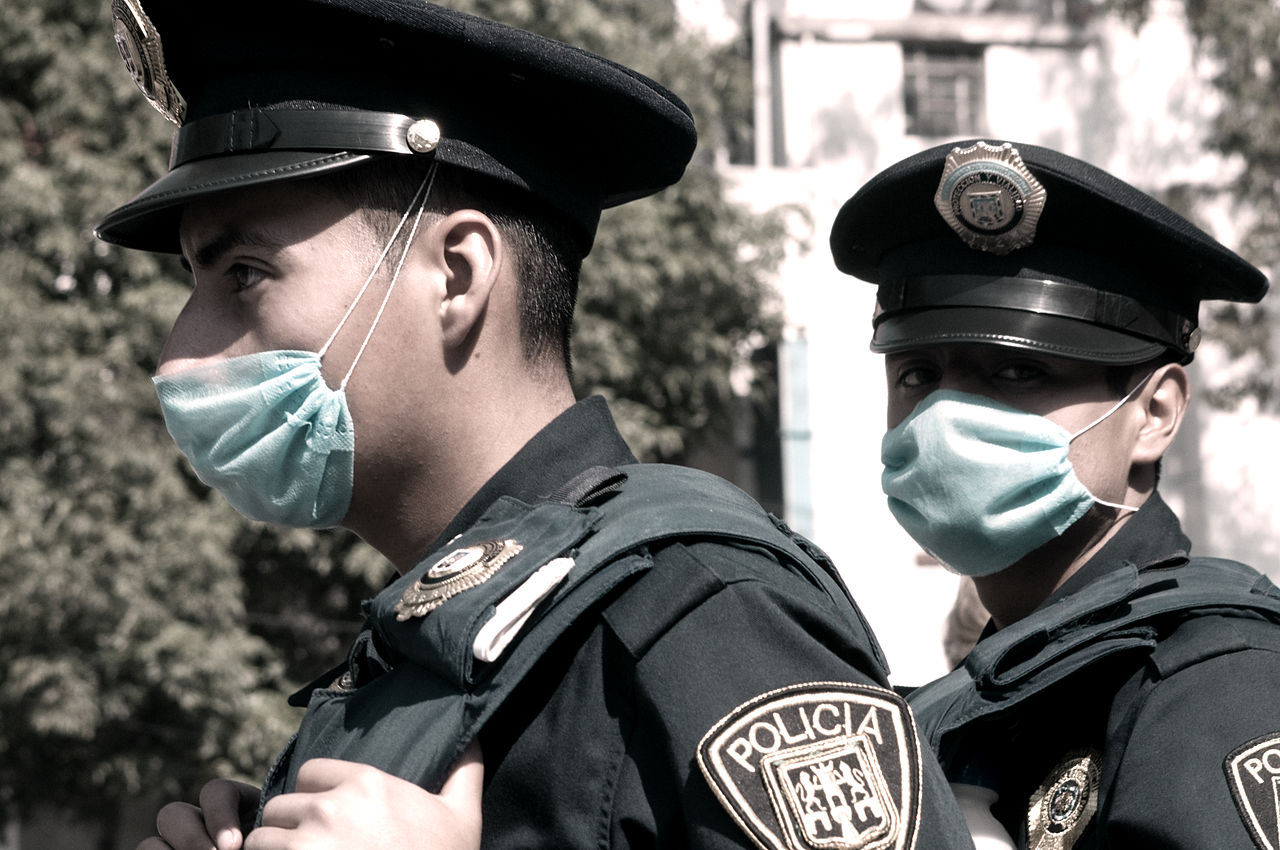Published April, 2020 by in Right to Record
The Right to Record for human rights during COVID-19
When WITNESS says the Right to Record, we are referring to the ability to pick up a camera or cell phone and film the police or military without retaliation. We are also talking about the initiative, commitment, attitude, and courage that it takes to exercise that right, and the organizing communities do to make this possible. The Right to Record has often been associated with streets—in protests around the world, in poor and gentrifying neighborhoods, in favelas and banlieues and rural roads where human rights abuses are taking place. But we want to make it clear that the Right to Record isn’t limited to the streets. In fact, even though many of us have been forced inside by COVID-19, exercising this right is more important than ever. If it weren’t for the videos created by courageous healthcare workers, community activists, and so many others around the world already, we would not understand the full dimension of the impacts of this crisis, and its disproportionate cost on those who always pay the heaviest price.
Now is not the time to act from a place of fear. Human rights do not have to be sacrificed for human lives. We are already seeing the pandemic being used as an excuse for the creation and strengthening of authoritarian-leaning governments and policies. This includes dictatorships, but it also includes so-called democracies like the United States and members of the European Union like Hungary. The military and law enforcement are enforcing lockdowns. They are not doing it in a fair way, much less using only the necessary and proportionate measures called for under international human rights law. They are not respecting human rights at all. And that needs to be documented—for now, and for when this pandemic eventually ends and we begin to pick up the pieces. As always, video can be used for storytelling and for documentation, and both of these uses are essential now. There are already many examples, such as forced evictions in South Africa, the inhuman conditions in prisons and detention centers in the US, and the dangerous conditions for homeless populations in Brazil. WITNESS is curating a list on our COVID19 Response Hub.
We use the phrase “Right to Record” to refer both to the human right protected by international human rights law (and the laws and constitutions of many countries), and to the whole concept of using video to expose human rights abuses and tell stories. Both these legalistic and social justice concepts are important: after all, the legal “right” doesn’t matter if governments don’t respect it and no amount of legal backing can replace the courage, attitude, and initiative communities take to exercise and to organize around this right. For more on international and local laws, please check out our Right to Record landing page, and check out our home page for comprehensive materials and news about what this means, from the different regions we work in, in Arabic, Portuguese, Spanish, and French.
General safety principles
WITNESS has many resources around documenting human rights abuses and telling your own story. We are collecting the resources that we think are most useful during the COVID-19 pandemic in one place, our new COVID-19 Response Hub—from knowing how to film to whether and how to share that footage publicly. We’re also working on new resources to respond to some of the emerging challenges of using video in this moment—for example, detailing some particular points you should consider during COVID-19 when many of us are under mandatory stay at home/limited movement orders.
If you want to exercise your Right to Record, here are some things to keep in mind:
- Breaking rules about staying inside your house in order to film is your decision, and we cannot advise you to do so. However, please do stay safe, and keep in mind that video can be used as evidence that you yourself broke the law, if it shows you were outside of your home “without valid reason.”
- If you are out on the streets and filming where an officer can see you, keep out of grabbing distance, whether the right to record is legally recognized or not. Not only is this a good idea for your safety, it ensures that it will be more difficult for them to seize your camera or cellphone without warning. Keep in mind that witnesses to police brutality often face retaliation.
- If an officer orders you to “stop interfering,” comply the minimum amount possible and document that you are doing so. For example, if a police officer tells you to back up, you can take a few steps back and say loud enough to be heard on camera “I am backing up, officer.”
- While filming, you may want to have automatic backup set up. That way, even if your phone is seized, you will not lose your documentation. Keep in mind, however, that backing up to the cloud could leave that data vulnerable to legal requests from the police.
- Livestreaming is a powerful but dangerous tool. When livestreaming, it is not possible to edit the video to blur faces of targets of police abuse. That being said, WITNESS has done significant work in this area. Check out our livestream page in the WITNESS Media Lab for more.
- The state of the law around the Right to Record varies greatly from country to country. Our Right to Record map may have information about the laws in your country. We will soon have a resource explaining how to figure out the rules where you live if we don’t have them on the map, and a special guide on filming during states of emergency. We will update this blog post as more resources become available.
- Once you have filmed, be very careful about distribution. Keep in mind if you don’t know the law, that filming in the first place, or distributing afterwards, could be illegal. Even if filming was legal and distributing is legal (like in the US) you could still face retaliation. And finally, as we note in our resources, the people in the video could face retaliation. Check out our ethical guides to help you think this decision through.
- Secret filming is illegal in many places, but it may be your only option. It includes a map of wiretapping laws in the US, and secret filming may be covered by similar laws in your country.
Whatever you do, stay safe, stay strong, and keep recording
23 April 2020

This work is licensed under a Creative Commons Attribution-NoDerivatives 4.0 International License.

